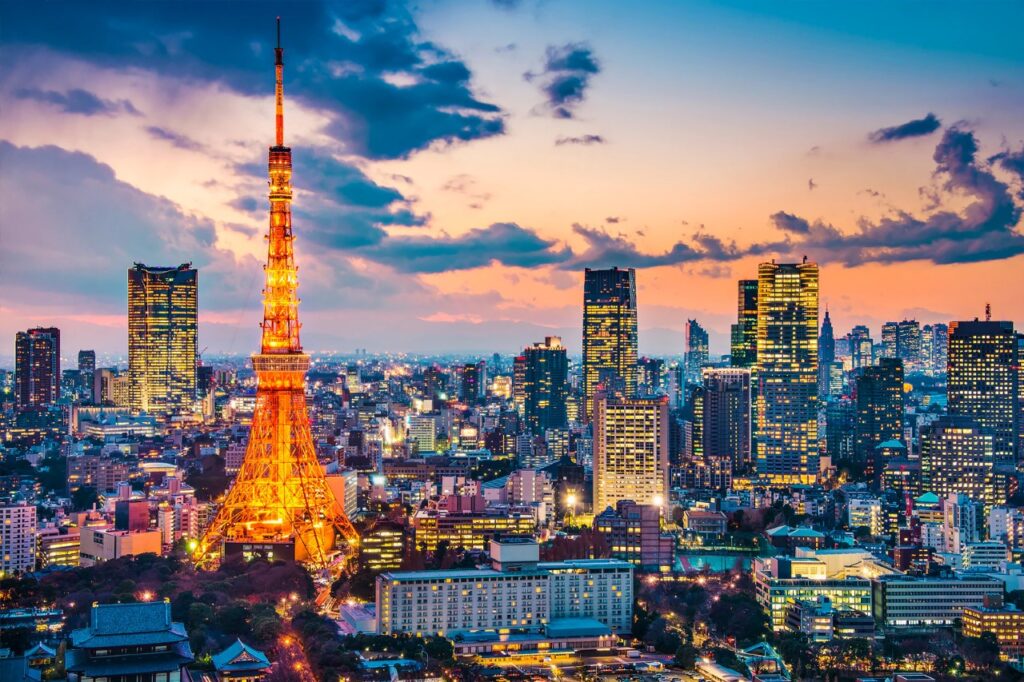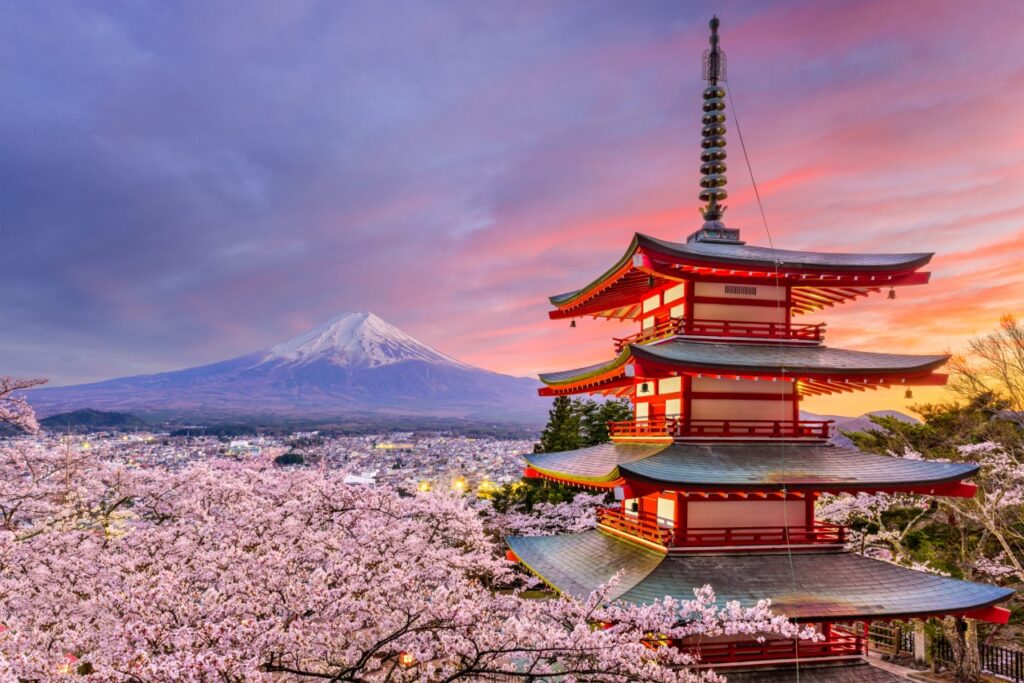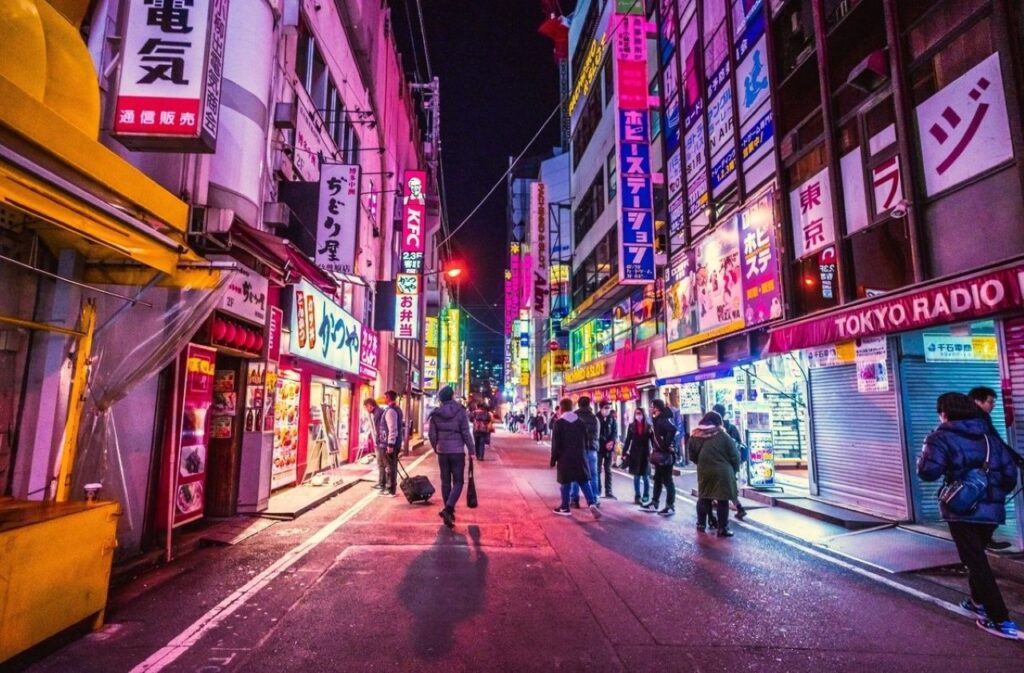Stepping into the vibrant and dynamic land of Japan is a journey marked by the promise of new beginnings. Tokyo Orientations stands ready to be your guide offering a range of destination services that include home finding, settling-in support, school searches, and departure assistance. Committed to ensuring a seamless relocation experience, our team of six office staff in Tokyo and nine field consultants is dedicated to making your transition to Japan as smooth and successful as possible.
Japan, often referred to as the “Land of the Rising Sun,” is a captivating blend of ancient traditions and cutting-edge modernity. From the iconic cherry blossoms that paint the country in hues of pink during spring to the bustling metropolis of Tokyo, where innovation and tradition coexist harmoniously, Japan is a mosaic of contrasts and cultural richness. As you prepare to make Japan your new home, Tokyo Orientations not only facilitates the practical aspects of relocation but also introduces you to the fascinating tapestry of Japanese life.
In collaboration with Reloc8 Asia Pacific Group, Tokyo Orientations proudly stands as a trusted partner, further reinforcing our commitment to excellence in relocation services. Our goal is to go beyond the mundane aspects of moving, providing immigration assistance to ensure a smooth transition for assignees and their families. Navigate the intricacies of Japanese living with Tokyo Orientations and set forth on your journey to a new chapter in the Land of the Rising Sun. Learn more about our services and expertise at www.tokyoorientations.com.
SECTION 1: UNDERSTANDING THE BASICS
What It’s Like to Live in Japan

Japan is a safe country with one of the highest population densities in the world. It boasts excellent transportation networks, with trains that run punctually. The climate is generally mild, although summers can be hot. While the people are friendly, it’s worth noting that English is not widely spoken. Moreover, the cost of living is reasonable, especially when it comes to dining out, and there is no tipping.
Read more: https://www.jakeyou.com/blog/pros-and-cons-of-living-in-japan
Cultural Differences
The language is difficult to speak and even more challenging to read. Additionally, the Japanese do not speak a lot of English. Things work well; banks are efficient, and trains and buses run on time. Attention to detail is evident in small things, such as the quality of Japanese ballpoint pens.
Read more: https://www.fluentin3months.com/japanese-culture/
Languages
Japanese is the only language, and it truly helps to speak at least a little.
Economy and Job Market
Japan is the 3rd or 4th largest economy in the world, although the population is aging, the birth rate is low and this demographic challenge is affecting the economy. Japan is 99% Japanese and faces difficulties in attracting foreigners even though there is a need for both skilled and unskilled workers. Unless your company transfers you here, you are able to teach English, or you possess a particularly marketable skill (such as IT), finding a job may prove challenging.
Read more: https://www.expatden.com/japan/finding-work-in-japan/
SECTION 2: COST OF LIVING AND LIFESTYLE

Cost of Living
Japan has one of the lowest costs of living among developed economies. Of particular note are the low public transportation costs, affordable eating and drinking options – especially in the myriad of small restaurants and bars that populate the cities – no tipping, suburban real estate rental and sale prices, and, lastly, home purchase interest rates.
Read more: https://www.numbeo.com/cost-of-living/country_result.jsp?country=Japan
Lifestyle
Japan is an easy country to live in as it is very safe, and things work well. Notably, public transportation is clean, fast and affordable. The excellent cuisine and inexpensive dining out experiences are helped in so small part by the absence of tipping.
Read more: https://www.jakeyou.com/blog/pros-and-cons-of-living-in-japan
Healthcare Services
Health care services in Japan are of the highest quality globally, and the Japanese people are among the longest-living. Despite this, healthcare costs are relatively low. The general process involves visiting a clinic first, and there are international clinics available that provide services in English. For more serious conditions, the clinic will refer individuals to a major hospital.
Read more: https://en.wikipedia.org/wiki/Health_care_system_in_Japan
Educational System
Japan also boasts excellent educational facilities and one of the highest literacy rates globally. Private international schools are available in various languages (English, French, German, Korean, etc.) and although they are not inexpensive, they do provide high-quality education. These schools are generally proud of their ability to place their graduates in the best institutions of higher learning.
Read more: https://www.internations.org/japan-expats/guide/education
SECTION 3: LEGAL AND IMMIGRATION ASPECTS

Legal Considerations When Moving to Japan
The relocating employee would need to have a sponsoring entity in Japan, whether it is a direct employer or a branch office/subsidiary of he employer in their home country. Without such a sponsor, the work visa application process will be quite difficult.
The most common categories that would apply to relocating corporate employees include “Intra-company transfer”, “Engineer”, “Specialist in Humanities/International Services”, or “Highly Skilled Professionals.” For further information on visa categories, refer to the link below language can be selected on the left bottom).
https://www.moj.go.jp/isa/applications/status/?hl=en”plications/status/?hl=en
Process of Acquiring Work Visas for Professionals and Their Families
The first step is to apply for what is called a Certificate of Eligibility (COE) through the immigration agency in Japan. The COE application process could take between 3-12 weeks, depending on the size/history of the sponsoring entity in Japan. Applications for newly established entities with no financial records may take a considerable amount of time, while those for listed companies or established entities with a large number of employees could be processed relatively quickly.
Once the COE is issued, the electronic approval document will be emailed to the relocating assignee for them to apply for the actual entry visa at the Japanese embassy/consulate in their location of origin.
The visa application timelines in the county of origin will vary depending on the location but would normally be around 3-7 business days.
Processes for Setting Up a New Business or a Branch of an Existing Company
Refer to below link for general information on setting up a new business in Japan.
https://www.jetro.go.jp/en/invest/setting_up/
In addition to having a business entity or branch in Japan, to be eligible to sponsor the COE for a relocating foreign employee, it is necessary to have a dedicated office and, at the very least, one employee already based in Japan.
Requirements for Permanent Residency or Citizenship
The requirements would vary slightly depending on the situation, but generally speaking, one of the below qualifications would need to be met:
- Living and working in Japan as a highly-skilled professional with 70 points or more for 3 years or longer.
- Living and working in Japan as a highly-skilled professional with 80 points or more for 1 year or longer.
- Being married to a Japanese national and living together in Japan for 3 years or longer.
- Working and living in Japan for 10 years or longer.
In addition to the above, it would be necessary to provide evidence that the person has been reporting their income and paying proper taxes, has been enrolled in necessary governmental social security schemes, and has not committed any crimes or serious violations, etc., during their stay.
SECTION 4: BUSINESS CULTURE AND WORK ETHIC
Work Culture
The work culture can be one of the most tedious experiences of living in Japan, particularly in the more conservative Japanese companies, where seniority system rules, and long hours are more the rule than the exception.
Read more: https://hivelife.com/work-culture-japan/
Business Customs
Japanese business customs are rather rigid, and it is best to undergo some cultural training to acclimatize oneself to the expected processes. Name cards are still the order of the day; seniority determines who talks and who doesn’t at meetings. Decisions can take a long time to make, and bowing – not shaking hands – is used for greeting and departing.
Typical Workday and Work Week
The typical workday for many Japanese is quite long, beginning with an hour-long commute and often concluding with a drink or a visit to a karaoke bar with the boss. Japanese do not typically take long holidays, and upper management may eventually enjoy such treasured perks as a chauffeur-driven car of a large expense account.
Read more: https://www.japannihon.com/what-is-the-typical-work-day-in-japan/
Tips for Making Good Business Relationships
As mentioned above, it is important to have some training in business etiquette. In general, little things matter, and by all means, avoid the hard sell or expectations of quick business decisions.
Read more: https://japaninsides.com/japanese-business-meeting-etiquette-32416
SECTION 5: HOUSING AND ACCOMMODATION
Commonly Available Accommodation
Low-rise apartments are most commonly available in central Tokyo, with some high-rise apartments and detached homes. As you move further into suburban areas, detached homes are the moest common residence, though high-rise residences can be found near the stations.
Housing Prices Across Different Regions
Average rental prices in Japan can vary widely depending on the location, property type, and other factors. Here are some approximate average rents and rental yields in different popular areas of Japan based on data from the Real Estate Economic Institute:
| Average Rents and Rental Yields for a 70 ~ 80 m2 Apartment in a Central Location | |||
| City | JPY | USD | % |
| Tokyo | 300,000 JPY | $2,140 | 4.4% |
| Yokohama | 165,000 JPY | $1,500 | 4.9% |
| Kyoto | 150,000 JPY | $1,360 | 4.9% |
| Osaka | 130,000 JPY | $1,180 | 5.2% |
| Fukuoka | 110,000 JPY | $1,000 | 5.6% |
| Sapporo | 100,000 JPY | $910 | 5-10% |
| Sendai | 90,000 JPY | $820 | 5-10% |
| Hiroshima | 80,000 JPY | $730 | 5-10% |
Expats in central Tokyo, however, whose rent is paid by their companies, would be more apt to have rental budgets like the following:
| (Please Indicate Currency used here) | Low Range | Mid Range | High Range |
| 1 Bedroom | 350,000-500,000 | 600,000-1,000,000 | 1,000,000-1,500,000 |
| 2 Bedrooms | 500,000-700,000 | 700,000-1,100,000 | 1,100,000-2,000,000 |
| 3 Bedrooms | 650,000-900,000 | 1,000,000-1,400,000 | 1,500,000-2,200,000 |
Key Considerations When Searching for Housing
Tokyo is a large city, and getting to another part of the city can easily take more than one hour by train. Accessibility to one’s workplace and to their international schools for one’s expat children are usually the primary concerns. Tokyo has both quiet residential areas and very busy, lively areas with lots of activities happening. It would be important to think about what you would like to be surrounded with when choosing an area for housing.
Process of Purchasing a Property
Anyone can purchase a property with cash, but to be eligible for a low-cost home loan, most major banks will require three years of local tax returns. The process is overseen by the real estate agent and the legal scrivener (shiho shoshi), a type of lawyer who specializes in registering the ownership of properties. Therefore, it is important to use a trusted realtor.
Please see here for more details:
https://tokyoportfolio.com/can-foreigners-buy-a-home-in-japan/
https://www.globalpropertyguide.com/asia/japan/buying-guide
SECTION 6: TRANSPORTATION AND CONNECTIVITY
Main Forms of Transportation
Tokyo is covered by a dense network of train, subway, and bus lines, operated by about a dozen different companies. The train lines operated by JP East and the subway lines are most convenient for moving around central Tokyo.
Japanese train lines consistently run on time, down to the minute, making them very reliable. While delays can occur due to accidents, signal problems, or weather, such occurrences are rare.
For more information on getting around Tokyo, you can find details here: https://www.japan-guide.com/e/e2017.html
Internet and Mobile Connectivity
The internet and mobile connectivity in Japan are known to be generally very good. Unless you are in the mountains or on islands, it is rare to not be able to connect to the internet.
Japan is also home to a number of easily accessible locations that offer free Wi-Fi, including convenience stores, cafes, fast-food restaurants, accommodations, airports, and select train stations and lines. Telephone booths also provide free internet access.
Best Cities or Regions for Commuting to Work
Tokyo, the largest city in Japan, is by far the best when considering commute time to work. Other large cities like Osaka and Kyoto also have good transportation systems.
Accessibility to Main Business Hubs
Japan is extremely accessible and well-connected, you can reach most places within a one-hour commute. Tokyo has been names one of he most accessible cities in the world in a survey carried out by Valuable 500 in 2022, a global business collective consisting of 500 companies innovating together for disability inclusion: https://www.ttgasia.com/2023/01/06/tokyo-recognised-as-an-accessible-travel-destination/#:~:text=Tokyo%20has%20been%20named%20one,innovating%20together%20for%20disability%20inclusion.
SECTION 7: SOCIAL INTEGRATION AND NETWORKING
Hospitality
Most Japanese are friendly to foreigners and big fans of Western music, art, etc. However, as not many Japanese people speak English, understand English humor, or have ever left Japan, it may be difficult for foreigners to get close to Japanese people. Their work ethic and way licing are also different from most foreign cultures, and some may have a hard time adjusting to that. It can, therefore, be very important for a foreigner to learn about Japanese etiquette, language, and culture to better integrate into Japanese society.
Communities or Groups for Expats
There are many established communities for expats, whether they are clubs, social fitness groups, meetips, etc. Please see below two links for some of the popular communities for expats:
https://www.alljapanrelocation.com/living-guides/expat-community/
https://www.japanlivingguide.com/leisure/going-out/expat-communities/
Socializing and Networking
There are many networking and socializing events happening all over Tokyo for expats, Joining one of the clubs or communities listed about in one way, or going out and meeting people in bars, particularly in areas like Minato-ku where there are lots of expats, can be fun for socializing.
You can get involved in local activities or community events by looking up the English website for what’s happening in your local ward or reaching out to the staff members at one of the above communities.
An example of the website that shows the events happening that month: https://en.japantravel.com/events/tokyo-minato
SECTION 8: DEALING WITH EMERGENCIES
Emergencies
In terms of natural disasters, the Japanese have dealt with many events of earthquakes and tsunamis, and Japan has a very extensive program, including public training, in dealing with these types of emergencies.
Steps to Follow in Case of a Medical Emergency
Please remember two important emergency phone numbers in case of an emergency. One is “110” for the Police Department, and the other is “119” for the Fire Department. These calls are free in Japan and can be made from public phones and mobile phones.
Natural Disasters
Earthquakes and typhoons are the most common natural disasters in Japan. If you have lived in Japan for more than 6 months, a tremor is something you will most likely experience at some point. All buildings in Japan, especially those built after 1981, are constructed to withstand earthquakes. It is generally wise to seek to live in newer buildings.
Typhoons also occur in the late summer and fall. The major damage from typhoons is usually landslides, but these are predominantly in the mountainous regions. Cities like Tokyo and Osaka are on plains and do not have these dangers. Heavy rain is very common, though, anywhere, and fortunately, the storm sewer system is well developed.
Support in Emergency Situations
This can depend on the type of emergency, but the Japanese Government will be responsible for assisting foreigners immediately after a major disaster.
Please see here for the Assistance for Foreigners at Times of Disaster Q&A Manual: https://www.bousai.go.jp/kaigirep/houkokusho/hukkousesaku/saigaitaiou/output_html_1/pdf/qa_en.pdf
__________________________________________________________________________________
Reloc8 Asia Pacific Group
Reloc8 consists of key partners located in 12 countries across the Asia Pacific region. Together, we offer employee mobility services to clients seeking assistance in 23 locations throughout Asia, including: Australia, China, India, Indonesia, Japan, Korea, Malaysia, New Zealand, Philippines, Singapore, Taiwan, and Thailand. In addition to these, we extend our services to the following destinations: Fiji, Hong Kong, Sri Lanka, Papua New Guinea, New Caledonia, Pakistan, Bangladesh, Nepal, The Solomons. The Maldives, and Guam. Our members represent the premier destination and immigration service providers in the Asia Pacific region. Each partner maintains their unique style and cultural identity, contributing to the Alliance’s diverse and multicultural atmosphere. However, they all share a collective commitment to upholding the highest standards of ethics, integrity, and service excellence.



